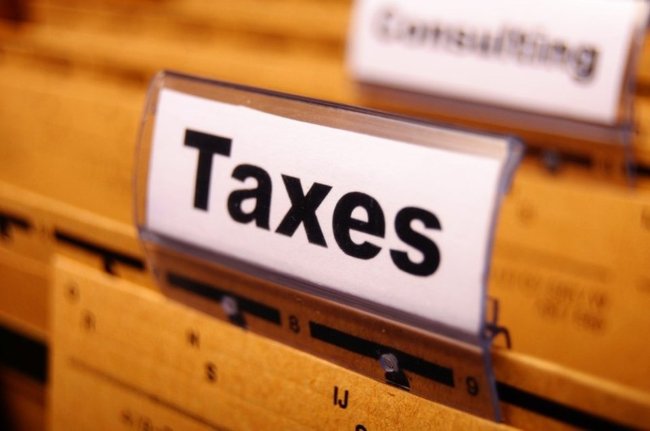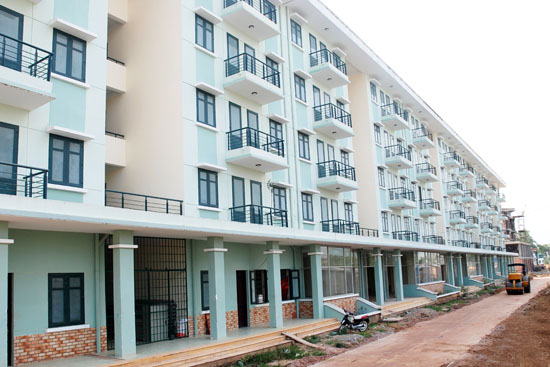The 5th session of the 13th National Assembly has passed the amended Law on Corporate Income Tax (CIT) with the following fundamental contents:
1. Regarding the concept of permanent establishment:
Amend the concept of permanent establishment (removing the phrase "generating income") to align with international commitments and not affect Vietnam's right to tax.
2. Regarding taxable income:
Supplement to cover all newly arising income such as: income from the transfer of investment projects; income from the transfer of rights to explore, exploit, and process minerals; income from the transfer of capital contribution rights, rights to participate in investment projects. Additionally, to ensure accuracy, the Law has amended to exclude "provision reversal" from other income (transferred to cost reduction accounting).
3. Regarding tax-exempt income:
To be consistent with reality and in sync with related legal regulations, the amended Law has added tax-exempt income for:
(i) Income from salt production of Cooperatives (HTX);
(ii) Income of Cooperatives operating in the fields of agriculture, forestry, fishery, and salt production in areas with difficult and extremely difficult socio-economic conditions;
(iii) Income from crop production, livestock, and aquaculture of enterprises in areas with extremely difficult socio-economic conditions;
(iv) Income from fishing activities;
(v) Income from the transfer of certified emission reductions (CERs) of enterprises granted certificates;
(vi) Income from the state's development investment credit activities, export credit of the Vietnam Development Bank, income from credit activities for the poor and other policy beneficiaries of the Social Policy Bank, income from state financial funds and other state funds operating on a non-profit basis, income from organizations 100% owned by the State, established by the Government of Vietnam to handle bad debts of Vietnamese credit institutions;
(vii) Undivided income of socialization (XHH) establishments in the fields of education – training, healthcare, and other socialization fields to be reinvested for development; the income forming undivided assets of cooperatives established and operating according to the Law on Cooperatives.

Illustrative image (source internet)
4. Regarding determining taxable income and loss carryforward for real estate transfer and some new income:
Add a regulation allowing one-way offsetting of losses from real estate transfers (transfers of investment projects, transfers of rights to participate in investment projects, except mineral exploration and exploitation projects) with profits from main business activities.
5. Regarding deductible and non-deductible expenses:
(i) Add a regulation requiring non-cash payment documents for purchases of goods and services with invoices worth 20 million VND or more per transaction;
(ii) Increase the cap on advertising and promotional expenses from 10% to 15%, while removing certain expenses that are not promotional in nature, such as payment discounts, free newspapers, and newspapers given by press agencies from the restricted costs;
(iii) Add sponsorship expenses to deductible expenses for scientific research sponsorships and state program sponsorships for localities in particularly difficult socio-economic areas;
(iv) Add regulation on contributions to voluntary pension funds or socially beneficial funds as deductible expenses;
(v) Add principles for determining reasonable costs in specific industries (banking, insurance, securities, lottery, etc.);
(vi) Remove the regulation requiring enterprises to build and notify tax authorities of norms for raw materials, fuel, energy, and goods consumption.
6. Regarding tax rates:
- The general tax rate is 22%, effective from January 1, 2014; reduced to 20% from January 1, 2016;
- Small and medium-sized enterprises (annual revenue not exceeding 20 billion VND) apply a tax rate of 20% from July 01, 2013.
- The preferential tax rate of 20% will be reduced to 17% from January 1, 2016.
7. Regarding tax incentives
a. Regarding the subjects and principles of tax incentives:
- Shift from incentives based on the legal entity (newly established enterprises from investment projects) to incentives based on new investment projects of enterprises, to ensure consistency with the Investment Law. This approach will broaden the scope of incentives for new investments compared to the current law, affecting the state budget and tax administration.
- Codify the regulations in ND 122 by adding provisions that if an enterprise cannot separately account for the income from tax-incentive business activities, the income from tax-incentive business activities is determined based on the ratio of revenue from tax-incentive activities to the total revenue of the enterprise; simultaneously adding provisions that if an enterprise is entitled to various tax incentives for the same income within the same period, it can choose the most favorable tax incentive.
b. Regarding sectors, industries, and regions qualifying for tax incentives:
The current Corporate Income Tax Law stipulates tax incentives (including preferential tax rates and tax exemption and reduction periods):
- 10% tax rate for 15 years, exempt for 4 years, 50% reduction in 9 years;
- 20% tax rate for 10 years, exempt for 2 years, 50% reduction in 4 years;
- 10% or 20% tax rate for income of enterprises operating in the field of private investment, agriculture service cooperatives, and people's credit funds, and specifically stipulate tax incentive fields and regions.
To ensure the consistency and synchronization of the legal system and align with the socio-economic development strategy in the coming years, the amended Law adds more fields, industries, and regions eligible for tax incentives, specifically:
- Add to the scope of application of the 10% tax incentive for 15 years, exempt for 4 years, and reduce 50% of the payable tax for up to 9 years for:
+ Income of enterprises from new investment projects: high technology application; high technology incubation, high-tech enterprise incubation; venture investment in high technology development; investment in building - operating high technology incubation facilities, high-tech enterprise incubation facilities; production of composite materials, light construction materials, rare materials; production of renewable energy, clean energy, energy from waste destruction; biotechnology development; environmental protection;
+ Income of enterprises from new investment projects in the manufacturing sector (excluding projects that produce goods subject to special consumption tax, mineral exploitation projects) meeting one of the two criteria:
- Investment capital scale over 6 trillion VND, disbursement within 3 years, achieving a minimum total revenue of 10 trillion VND/year after 3 years from the year revenue is generated.
- Minimum investment capital scale of 6 trillion VND, disbursement within 3 years from the investment license issuance, and employing over 3,000 laborers.
+ Income of high-tech enterprises, agricultural high-tech enterprises as stipulated by the Law on High Technology.
- Add to the scope of the 10% preferential tax rate for the following incomes:
+ Income of enterprises from social housing investment and business projects;
+ Income from printed press activities (including advertising on printed newspapers) of press agencies; Income from publishing activities of publishing agencies;
+ Income of enterprises from: planting, care, protection of forests; agricultural, forestry, fishery cultivation in difficult socio-economic areas; production, breeding, and hybridization of plant breeds, animal breeds; production, exploitation, and processing of salt except for salt production under tax exemption for cooperatives; investment in post-harvest preservation, preservation of agricultural, fishery products, and food;
+ Income of cooperatives operating in the fields of agriculture, forestry, fishery, and salt production not located in difficult socio-economic and extremely difficult socio-economic areas.
- Add to the scope of the 20% preferential tax rate, exempt for 2 years, and 50% reduction of the payable tax in 4 years for: Income of enterprises from new investment projects: producing high-grade steel; producing energy-saving products; manufacturing machinery and equipment for agricultural, forestry, fishery, and salt production; producing irrigation equipment; producing, refining feed for livestock, poultry, fishery; development of traditional trades.
- Add to the scope of the 20% preferential tax rate for Microfinance Organizations.
- Add tax incentives for Industrial Zones: income of enterprises from new investment projects in Industrial Zones (except for Industrial Zones located in favorable socio-economic areas) are exempt from tax for 2 years, and reduce 50% of the payable tax for the next 4 years.
- Add regulations for enterprises transferring technology in priority fields to organizations and individuals in difficult and extremely difficult socio-economic areas, reducing 50% of Corporate Income Tax on income from technology transfer.
8. Tax incentives for expanded investment (EDI)
The Corporate Income Tax Law of 2003 stipulated incentives for EDI; however, the Corporate Income Tax Law of 2008 entirely removed provisions for EDI, retaining incentives only for new investments. This change created many challenges and elicited reactions from enterprises, increasing administrative procedures and costs as enterprises needed to establish new legal entities to enjoy incentives.
Given these practical difficulties and to encourage enterprises' EDI, the amended Law has added provisions for tax exemption and reduction for EDI, specifically:
- Define criteria for EDI (must meet one of these three criteria:
(i) Additional original cost of fixed assets must be at least 20 billion VND (for EDI projects in fields eligible for Corporate Income Tax incentives as stipulated in this Law) or at least 10 billion VND (for EDI projects in difficult or extremely difficult socio-economic areas);
(ii) The proportion of additional original cost of fixed assets must reach at least 20% of the total original cost of fixed assets before investment;
(iii) Additional designed capacity must reach at least 20% of the designed capacity before investment).
- Incentive rates: Enterprises investing in expanding in fields and regions eligible for tax incentives according to this Law, meeting one of the three criteria above, may choose to enjoy tax incentives for the additional income generated from EDI according to the remaining time of the ongoing project (if any) or incentives in terms of the tax exemption and reduction period for new investment projects. If the EDI does not meet one of the three criteria above, tax incentives shall follow the ongoing project for the remaining time (if any).
9. Specific regulations on certain non-incentivized income and tax incentive principles
a) Specifically stipulate certain non-incentivized income: Income from capital transfers, transfer of capital contribution rights; income from real estate transfers (except social housing), income from transferring investment projects, transfer of rights to participate in investment projects, transfer of rights to explore, exploit, process minerals; income from production and business activities outside Vietnam; Income from activities of searching, exploring, exploiting oil, rare resources, and other rare minerals; Income from services subject to special consumption tax.
b) Clearly stipulate certain cases that are not subject to Corporate Income Tax incentives such as enterprises implementing new investment projects: cases of division, separation, merger, consolidation, transformation of enterprise forms, transfer of ownership...
10. Regarding the effective date and transitional incentive handling
- Regarding the effective date, the Law amending and supplementing several articles of the Corporate Income Tax Law 2013 will take effect from January 01, 2014.
- To help reduce difficulties for small and medium-sized enterprises and encourage investment and business in social housing in the context of economic difficulties and a frozen real estate market, the Law stipulates the early implementation of two main tax incentive policies six months earlier than the general effective date of the Law (effective from July 01, 2013), including: the provision of a 20% tax rate for small and medium-sized enterprises and a 10% tax rate for income of enterprises from social housing investment and business projects.
- Clearly stipulate the transitional incentive principle for enterprises with investment projects that, by the end of the tax year 2013, are still enjoying Corporate Income Tax incentives and continue to enjoy for the remaining time or choose to benefit according to the provisions of this Law if they meet the incentive conditions stipulated in this Law for the remaining time.
- By the end of the tax year 2015, enterprises with investment projects applying the 20% preferential tax rate according to Point 3, Clause 7, Article 1 of the amended Law will apply the 17% tax rate from January 01, 2016, for the remaining time.
 Article table of contents
Article table of contents








